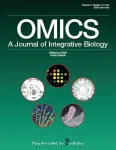(Press-News.org) The innovation by chemists, resulting in the creation of a long polyethylene chain out of the small chemical monomer ethylene, has been a ground-breaking discovery, awarded the Nobel Prize in Chemistry in 1963. This remarkable discovery paved the way for highly useful industrial processes and set the stage for widespread use of plastics, which transformed our world in once unimaginable manners.
Today, exactly six decades later, the extensive use of plastics and their products is posing a threat to human health and the environment at the extent of a planetary crisis. These crises do not have borders, as today's consumption and production patterns are globalized, often putting developing regions and people in vulnerable situations at risk. Plastic pollution, in the form of microplastics, can be found in the most remote places, from the highest peaks to the Arctic and Antarctic.
The situation urgently demands to base our future on scientific evidence and profound knowledge to create a robust set of policies that can tackle the immense plastic challenge throughout its life cycle. The milestone resolutions adopted by the fifth session of the United Nations Environment Assembly, concerning the establishment of a Science-Policy Panel on chemicals, waste, and pollution (res 5/8), and mandating intergovernmental negotiations to develop a global legally binding instrument to end plastic pollution are the backdrop of this journey (res 5/14).
The Intergovernmental Negotiating Committee (INC) is working tirelessly to create a legally binding instrument on plastic pollution, including in the marine environment. In parallel, the negotiations are ongoing to establish the Science-Policy Panel. In this article we will explore the key principles and components guiding this endeavour and emphasize the importance of a multi-faceted approach.
Principles of the Plastic Pollution Battle
Credibility, salience, and legitimacy are the cornerstones of any successful science-policy interface. They ensure that decisions are grounded in rigorous research, relevant to the challenges at hand, and supported by the trust of the public and stakeholders. Equally important is the principle of integrity, which guards against conflicts of interest. Inclusivity is another vital principle, ensuring that diverse voices from different regions, genders, and disciplines are heard. It also acknowledges the value of local, traditional, and Indigenous Knowledge systems, which often hold invaluable insights.
Components of the science-policy interface
The development of the science-policy interface for the plastics pollution is divided into three main components:
· Internalizing science-policy functions: This involves embedding science-policy functions within the plastics instrument which is presently undergoing international negotiations. Carrying out of functions is meant to support the policy-making process by informing with the latest scientific findings.
· Supporting and complementing functions: The ultimate goal of the two negotiation processes is reaching the agreement on what potentially will be called the Global Plastics Treaty and establishment of the Science-Policy Panel. The cooperation between the agreement and the panel could be potentially reflected in founding documents. This cooperation enhances the breadth and depth of the expertise available for addressing plastic pollution.
· Leveraging existing bodies: Numerous other science-policy interfaces, particularly those within multilateral environmental agreements, can reinforce the science-policy interface of the plastics instrument, creating a network of support.
Ten key potential functions of the science-policy interface for plastic pollution, spanning across the four phases of the policy cycle – agenda setting, policy formulation, implementation, and evaluation – have been identified.
Agenda setting: This phase focuses on identifying potential threats, including emerging risks related to novel entities and legacy plastics. The Science-Policy Panel's horizon scanning function is instrumental in recognizing these challenges.
Policy formulation: Extensive scientific and technical support is essential in this phase. Scientific criteria for control measures, subsidiary bodies for chemical and product safety, and committees for assessing alternatives and non-plastic substitutes are crucial.
Broader Assessments is part of policy formulation. Comprehensive assessments of plastic pollution's impact on ecosystems, biota, and human health are necessary. The Science-Policy Panel, with its independence and intergovernmental nature, plays a pivotal role in providing credible information.
Implementation: This phase requires the development of expert working groups, the establishment of a knowledge management mechanism, and interdisciplinary data utilization. Collaboration between the plastics instrument and the Science-Policy Panel is essential.
Evaluation: Data-centric, this phase emphasizes global monitoring of progress and effectiveness. The plastics instrument is pivotal in reporting, monitoring, and data collection, supported by the development of an indicator framework and standardized methodologies.
Beyond these stages, capacity building and commutations act cross all policy phases.
Capacity building and communication
It is imperative that all countries are equality involved in both the Science-Policy Panel and the plastics instrument negotiations. Developing countries require an additional attention. Initiatives such as fellowship programs, strengthened foundational competencies, and facilitating developing country representatives' involvement are key to building a global, inclusive outcome.
In conclusion, the fight against plastic pollution requires a robust science-policy interface. Design of a high ambition plastics instrument would take the lead in handling the crises by establishing a set of principles and performing necessary functions.As we continue to navigate the complexities of plastic pollution, it is essential that we embrace science and policy as allies in the quest for a cleaner and more sustainable world.
END
Science needs to be the foundation of the new Plastics Treaty
Navigating the Global Plastic Pollution Crisis: Strengthening the Science-Policy Interface
2023-11-07
ELSE PRESS RELEASES FROM THIS DATE:
Window to the past: New microfossils suggest earlier rise in complex life
2023-11-07
UNIVERSITY PARK, Pa. – Microfossils from Western Australia may capture a jump in the complexity of life that coincided with the rise of oxygen in Earth’s atmosphere and oceans, according to an international team of scientists.
The findings, published in the journal Geobiology, provide a rare window into the Great Oxidation Event, a time roughly 2.4 billion years ago when the oxygen concentration increased on Earth, fundamentally changing the planet’s surface. The event is thought to have triggered a mass extinction and opened the door for the development ...
A potential target for new anti-cancer agents
2023-11-07
MYC family genes are essential for the human organism. According to current knowledge, they regulate the expression of most cellular genes. Misregulation of MYC proteins significantly contributes to the development of many types of cancer. Unsurprisingly, MYC proteins are in the focus of cancer research worldwide. From a scientific point of view, they could be the ideal anti-cancer targets.
Indeed, the importance of MYC for the development of cancer cells has been known for a long time. However, the structure of MYC proteins and their molecular function ...
TIER2 announces the awardees of the reproducibility network open call
2023-11-07
The Horizon Europe funded TIER2 project (enhancing Trust, Integrity and Efficiency in Research through next-level Reproducibility) has announced the two consortia which will receive a €5000 monetary award to hold a kick-off meeting for a national Reproducibility Network in their respective countries. The Georgian and Ukrainian awardees were selected among multiple applicants of the TIER2 Open Call which opened in July 2023 (read more here). After a round of reviews, carried out by Thomas Klebel (TIER2), Luka Ursic ...
Digital health ethics for precision medicine in palliative care
2023-11-07
A new article in the peer-reviewed OMICS: A Journal of Integrative Biology examines the ethical, equity, and societal/relational implications of digital health technologies for precision medicine in end-of-life care. Click here to read the article now.
John Noel Viana, PhD, from The Australian National University, and coauthors specifically assess the implications of two precision health modalities: (1) integrated systems biology/multi-omics analysis for disease prognostication; and (2) digital health technologies for health status monitoring and communication. The investigators provide ...
Hundreds of clinics may be guilty of false or misleading claims in ketamine advertising
2023-11-07
Hundreds of clinics may be using false and misleading statements in online advertising campaigns by offering off-label and unapproved ketamine to treat a variety of mental health and pain conditions, according to researchers at the University of Colorado Anschutz Medical Campus and Johns Hopkins University.
The study was published in JAMA Network Open.
“These are expensive treatments for which patients generally must pay out of pocket and the evidence base is often not robust for many of the advertised uses,” said Michael DiStefano, PhD, assistant professor in the Department of Clinical Pharmacy at the CU Skaggs School of Pharmacy ...
USPSTF statement on screening and preventive interventions for oral health in children and adolescents ages 5 to 17
2023-11-07
Bottom Line: The U.S. Preventive Services Task Force (USPSTF) concludes that the current evidence is insufficient to assess the balance of benefits and harms of routine screening performed by primary care clinicians for oral health conditions, including dental caries, in children and adolescents ages 5 to 17. The USPSTF also concludes that the current evidence is insufficient to assess the balance of benefits and harms of preventive interventions performed by primary care clinicians for oral health conditions, including dental caries, in children and adolescents ages 5 to 17. Untreated oral health conditions in children can lead to serious infections ...
USPSTF statement on screening and preventive interventions for oral health in adults
2023-11-07
Bottom Line: The U.S. Preventive Services Task Force (USPSTF) concludes that the current evidence is insufficient to assess the balance of benefits and harms of routine screening performed by primary care clinicians for oral health conditions, including dental caries or periodontal-related disease, in adults. The USPSTF also concludes that the current evidence is insufficient to assess the balance of benefits and harms of preventive interventions performed by primary care clinicians for oral health conditions, ...
Greenland's ice shelves have lost more than a third of their volume
2023-11-07
The largest floating ice shelves in the polar ice sheet have lost more than a third of their volume since 1978. In a study to be published on 7 November in Nature Communications, scientists from the CNRS1, alongside their Danish and American colleagues, have established that most of this thinning is due to the rise in surrounding ocean temperatures, which causes the glaciers’ floating extensions to melt. Until now, the glaciers in this region were considered to be stable, unlike more sensitive areas of the polar ice cap, which began to weaken in the mid-1980s.
Located ...
COVID-19 hospitalization in solid organ transplant recipients on immunosuppressive therapy
2023-11-07
About The Study: The findings of this study suggest that maintenance immunosuppressive drugs are associated with an increased risk of COVID-19 hospitalization in solid organ transplant recipients. These results should be considered by clinicians treating transplant recipients and may help inform epidemic-related decisions for this population in the future.
Authors: Epiphane Kolla, M.D., M.P.H., of French National Health Insurance in Saint-Denis, France, is the corresponding author.
To access the embargoed study: Visit our For The Media website at this link https://media.jamanetwork.com/
(doi: 10.1001/jamanetworkopen.2023.42006)
Editor’s ...
Presentation and outcomes of adults with overdose-related out-of-hospital cardiac arrest
2023-11-07
About The Study: In a population-based study of 6,790 adult patients with emergency medical services–treated out-of-hospital cardiac arrest (OHCA) from a U.S. metropolitan system, the incidence of overdose related out-of-hospital cardiac arrest increased significantly from 2015 to 2021. The greatest increase was observed among patients with a combined stimulant-opioid OHCA. Presentation and outcome differed according to the drug-specific profile. The combination of increasing incidence and lower survival among patients with an opioid-stimulant OHCA supports prevention and treatment initiatives ...
LAST 30 PRESS RELEASES:
Scientists show how to predict world’s deadly scorpion hotspots
ASU researchers to lead AAAS panel on water insecurity in the United States
ASU professor Anne Stone to present at AAAS Conference in Phoenix on ancient origins of modern disease
Proposals for exploring viruses and skin as the next experimental quantum frontiers share US$30,000 science award
ASU researchers showcase scalable tech solutions for older adults living alone with cognitive decline at AAAS 2026
Scientists identify smooth regional trends in fruit fly survival strategies
Antipathy toward snakes? Your parents likely talked you into that at an early age
Sylvester Cancer Tip Sheet for Feb. 2026
Online exposure to medical misinformation concentrated among older adults
Telehealth improves access to genetic services for adult survivors of childhood cancers
Outdated mortality benchmarks risk missing early signs of famine and delay recognizing mass starvation
Newly discovered bacterium converts carbon dioxide into chemicals using electricity
Flipping and reversing mini-proteins could improve disease treatment
Scientists reveal major hidden source of atmospheric nitrogen pollution in fragile lake basin
Biochar emerges as a powerful tool for soil carbon neutrality and climate mitigation
Tiny cell messengers show big promise for safer protein and gene delivery
AMS releases statement regarding the decision to rescind EPA’s 2009 Endangerment Finding
Parents’ alcohol and drug use influences their children’s consumption, research shows
Modular assembly of chiral nitrogen-bridged rings achieved by palladium-catalyzed diastereoselective and enantioselective cascade cyclization reactions
Promoting civic engagement
AMS Science Preview: Hurricane slowdown, school snow days
Deforestation in the Amazon raises the surface temperature by 3 °C during the dry season
Model more accurately maps the impact of frost on corn crops
How did humans develop sharp vision? Lab-grown retinas show likely answer
Sour grapes? Taste, experience of sour foods depends on individual consumer
At AAAS, professor Krystal Tsosie argues the future of science must be Indigenous-led
From the lab to the living room: Decoding Parkinson’s patients movements in the real world
Research advances in porous materials, as highlighted in the 2025 Nobel Prize in Chemistry
Sally C. Morton, executive vice president of ASU Knowledge Enterprise, presents a bold and practical framework for moving research from discovery to real-world impact
Biochemical parameters in patients with diabetic nephropathy versus individuals with diabetes alone, non-diabetic nephropathy, and healthy controls
[Press-News.org] Science needs to be the foundation of the new Plastics TreatyNavigating the Global Plastic Pollution Crisis: Strengthening the Science-Policy Interface



